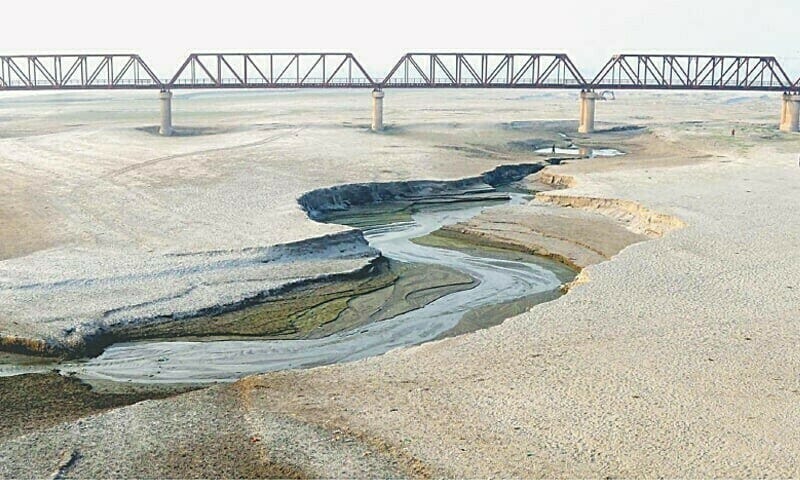The Cholistan Project
A Looming Crisis for Sindh’s Farmers
By: Guest Author
Sindh’s agricultural heartland is facing an unprecedented crisis as the federal government pushes forward with the Cholistan Project, a massive initiative to turn the barren lands of Punjab’s Cholistan Desert into arable farmland. While proponents hail it as a major step towards increasing Pakistan’s agricultural output, the project comes at a dire cost, one that the farmers of Sindh cannot afford to pay.
The project, launched in February 2025 under the Green Pakistan Initiative (GPI), seeks to develop thousands of acres of farmland in Cholistan, relying heavily on the diversion of Indus River water. According to reports, the government plans to construct two major canals to support large-scale corporate farming. However, this has sparked outrage across Sindh, where communities have long struggled with dwindling water supplies.
For decades, Sindh’s farmers have endured worsening drought conditions, exacerbated by upstream water diversions and climate change. The Sindh Abadgar Board and local irrigation experts warn that reducing the province’s already-limited share of Indus water will lead to disastrous consequences. "We are already receiving far less than our due share under the 1991 Water Accord. If even more water is diverted, our fields will dry up completely," said Ali Nawaz, a farmer from Badin.
The situation is particularly dire in districts like Thatta, Badin, and Sujawal, where freshwater shortages have allowed seawater intrusion to devastate fertile land. Once-thriving rice and wheat farms now lie barren, and entire communities face displacement. Environmentalists argue that the Cholistan Project will accelerate this ecological collapse, putting both food security and biodiversity at risk. "The Indus Delta, which supports unique ecosystems and fishing communities, is already under severe stress. If less water reaches Sindh, the consequences will be catastrophic," said Dr. Aslam Shaikh, a leading environmental researcher.
Beyond environmental concerns, there are deep-seated fears about the socio-economic impact of the project. Many small farmers in Sindh believe the project disproportionately benefits Punjab’s large landowners and corporate interests while neglecting Sindh’s existing agricultural challenges. "If the government is serious about agricultural development, why not invest in modernizing Sindh’s irrigation systems? Why divert resources to create new farmland while existing farmland is suffering?" questioned Jeay Sindh Qaumi Mahaz (JSQM) activists during recent protests in Hyderabad.
As tensions rise, local leaders are calling for the project to be debated in the Council of Common Interests (CCI). Sindh Chief Minister Murad Ali Shah has voiced strong opposition, demanding an equitable distribution of water resources. "Sindh will not stand for any decision that deprives our people of their rights. We are already suffering due to water mismanagement; this project will only make things worse," he stated in a press conference.
With farmers staging protests and legal experts exploring challenges to the project, the Cholistan issue is shaping up to be a major flashpoint in Pakistan’s interprovincial water disputes. Whether the government chooses to press ahead with the initiative or reconsider in light of Sindh’s grievances remains to be seen. One thing, however, is clear: for the people of Sindh, the Cholistan Project is not just about land, it is about survival.


